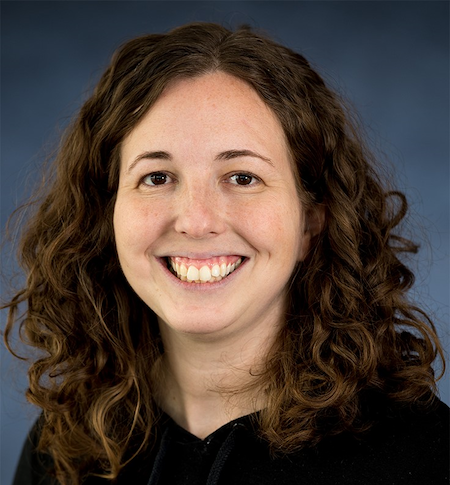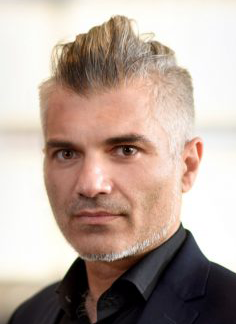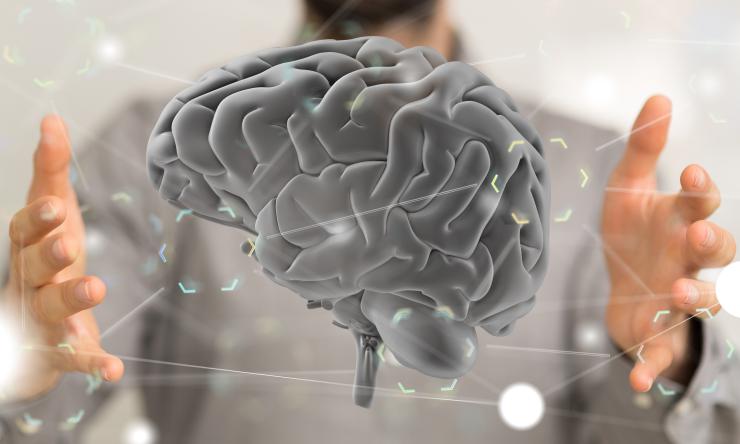Baylor researchers awarded BRAIN Initiative grants
Baylor College of Medicine researchers Dr. Sarah Heilbronner, associate professor of neurosurgery, and Dr. Andreas Tolias, professor of neuroscience, each have been awarded a grant from the National Institutes of Health BRAIN Initiative Connectivity Across Scales (BRAIN CONNECTS). This project is a part of Brain Research Through Advancing Innovative Neurotechnologies Initiative, better known as the BRAIN Initiative.
The goal of the BRAIN Initiative is to transform neuroscience research by mapping and revealing fundamental principles governing the neural circuits of behavior and informing new approaches to the treatment of brain disorders. BRAIN CONNECTS is the third large-scale, transformative project resulting from the BRAIN Initiative.
Heilbronner and Tolias are leading two of the 11 research projects from across the globe that were awarded by BRAIN CONNECTS. Over the next five years, researchers will leverage cutting edge technology to image and analyze brain connectivity with unparalleled speed and resolution. Research teams will develop pipelines for data collection and analysis, with the capability of scaling up to map full brain-wide networks in human brains. The projects will develop complementary brain mapping technologies, each with a different application.

Dr. Sarah Heilbronner
Heilbronner, who joined Baylor in March as a McNair Scholar, is part of a group of researchers from the U.S. and abroad who aim to map the specific neural pathways that generate human behaviors and are responsible for higher-level functions.
“We will be doing a deep dive into the circuitry responsible for connecting the front of the brain (frontal lobe) with the back of the brain (parietal lobe). We know from functional studies that these connections are important for higher cognitive processes like decision making and self-control,” she said. “What we don’t know is the pattern of connections made at a very zoomed-in scale. We want to know how single axons are connected across the frontal and parietal lobes.”
Many brain disorders are essentially disorders of connectivity – they are problems with how neurons communicate with one another, she explained. Targeting connections that have gone awry could be one way to treat these types of disorders.
“That can be challenging when the underlying wiring diagram is unknown or too coarse. I look forward to bringing anatomically precise information about brain connectivity learned from BRAIN Connects to neuromodulation applications at Baylor,” Heilbronner said.

Dr. Andreas Tolias
Tolias, founder and director of the Center for Neuroscience and Artificial Intelligence at Baylor, is leading a group of collaborators to develop a high-throughput, cost-effective method for brain-wide connectivity mapping across brain areas and species. While he and other collaborators have pioneered tools such as Patch-seq and spatial transcriptomics to link molecularly-defined cell types with their physiology and anatomical features, he and his team now look to improve and transform these methods to provide comprehensive synaptic resolution wiring diagrams of entire mammalian brains that are accessible to all researchers.
His group will do this by further developing Rabies Barcode Interaction Detection followed by Sequencing (RaBID-seq) with the goal to map the inputs to thousands of post-synaptic neurons in a single animal.
“By reducing the problem of synaptic connectivity into a problem of barcode sequencing, our approach has the potential to dramatically increase throughput, decrease costs and provide a direct link to the transcriptome of each mapped cell,” Tolias said. “The goal is to transform brain-wide circuit mapping into a routine experiment that can be performed in any lab with modest resources, making it possible to explore how circuits differ between treatment conditions, in disease states, between the sexes and across the lifespan.”
Collaborators
Other researchers involved in Heilbronner’s project include Drs. Kamil Ugurbil, Damien Fair, Christophe Lenglet, Essa Yacoub, and Jan Zimmermann, all at the University of Minnesota Medical School; Taner Akkin at the University of Minnesota College of Science and Engineering; Stamatios Sotiropoulos at the University of Nottingham; Guoqiang Bi at Shenzhen Institute of Advanced Technology; Franco Pestilli at the University of Texas Austin; Karla Miller and Saad Jbabdi at Oxford University; Kurt Schilling at Vanderbilt University; Partha Mitra at Cold Spring Harbor Laboratory; and Clay Reid at Allen Institute.
Other researchers involved in Tolias’ project include Drs. Cathryn Cadwell at the University of California, San Francisco; Xaq Pitkow at Carnegie Mellon University; and Tony Zador at Cold Spring Harbor Laboratory.











